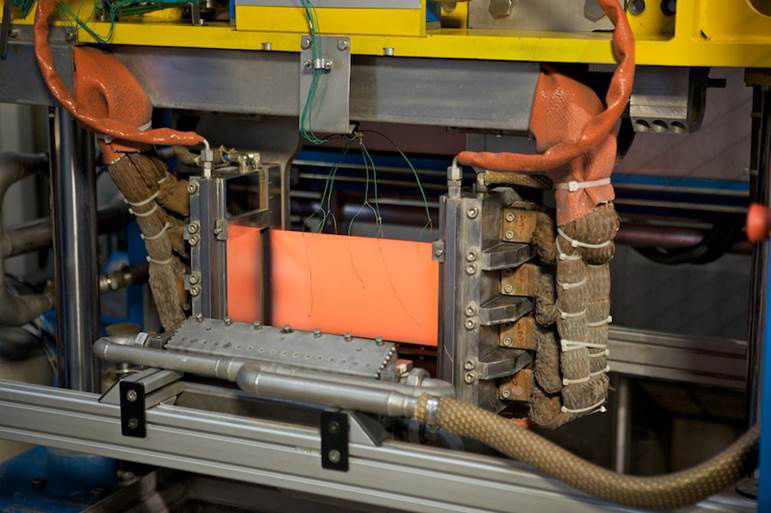CD Laboratory for Model-Based Process Control in the Steel Industry
Head of research unit
Commercial Partner
Duration
01.01.2021 - 31.12.2021
Thematic Cluster


Controlling production plants as precisely as possible is a constant challenge in the steel industry. This CD Laboratory focuses on the development, validation and implementation of customised real-time capable models and control concepts for complex production processes.
In addition to increased global competitive pressure, the challenges facing the modern steel industry include rising quality requirements, shorter product life cycles and higher demands on resource and energy efficiency. Excellent control of production facilities is essential for success. However, the problem is complex: hot rolling, for example, involves more than 50 actuators that have to interact optimally with each other in order to achieve the desired quality of the rolled end product.
A key technology for mastering all these factors is automation and control technology. In the recent past, there has been significant methodological progress in non-linear and optimisation-based control theory. However, its application in the production processes of the steel industry is lagging behind. Possible reasons include the complexity of the plants and processes, the requirements for robustness due to the harsh environmental conditions and the long service life of large-scale plants in the steel industry.
Implementation in practice therefore requires more than simply applying methods; it requires customised mathematical models and methods as well as close cooperation between process specialists and control engineers.
The CD Laboratory's research work centres on the development of real-time mathematical models based on basic physical principles and their application in an integrated mechatronic system design, for system analysis and in the identification of optimal process parameters. Particular attention is paid to systematically recording the couplings in the sense of a multi-variable system as well as the essential non-linearities and dynamics. The research work concentrates on the hot strip mill and the hot-dip galvanising line as well as on a series of experimental simulators.
Mathematical models with physical parameters and a transparent structure form a solid basis for the (non-linear) control design and the development of customised, real-time-capable dynamic optimisation processes. Finally, the optimisation and control concepts developed can be implemented on the actual hardware used in operation and verified prototypically on the plants of the company partner voestalpine Stahl GmbH. This implementation and validation on the real plant is an essential part of the entire development process.


Christian Doppler Forschungsgesellschaft
Boltzmanngasse 20/1/3 | 1090 Wien | Tel: +43 1 5042205 | Fax: +43 1 5042205-20 | office@cdg.ac.at



